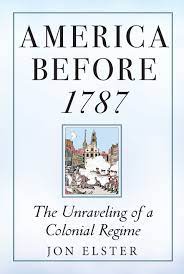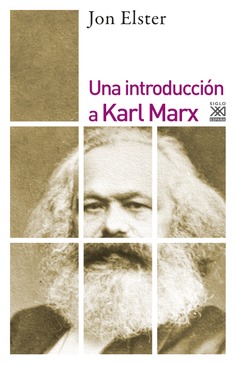America before 1787
the unraveling of a colonial regime
- ISBN: 9780691242651
- Editorial: Princeton University Press
- Fecha de la edición: 2023
- Lugar de la edición: Princeton (NJ). Estados Unidos de Norteamérica
- Encuadernación: Cartoné
- Medidas: 24 cm
- Nº Pág.: 488
- Idiomas: Inglés

An original account, drawing on both history and social science, of the causes and consequences of the American Revolution
With America before 1787, Jon Elster offers the second volume of a projected trilogy that examines the emergence of constitutional politics in France and America. Here, he explores the increasingly uneasy relations between Britain and its American colonies and the social movements through which the thirteen colonies overcame their seemingly deep internal antagonisms.
Elster documents the importance of the radical uncertainty about their opponents that characterized both British and American elites and reveals the often neglected force of enthusiasm, and of emotions more generally, in shaping beliefs and in motivating actions. He provides the first detailed examinations of "divide and rule" as a strategy used on both sides of the Atlantic and of the rise and fall of collective action movements among the Americans. Elster also explains how the gradual undermining in America of the British imperial system took its toll on transatlantic relations and describes how state governments and the American Confederation made crucial institutional decisions that informed and constrained the making of the Constitution.
Drawing on a wide range of historical sources and on theories of modern social science, Elster brings together two fields of scholarship in innovative and original ways. The result is a unique synthesis that yields new insights into some of the most important events in modern history.
Chapter 1. Introduction
The Thirteen Colonies
Uncertainty
Conclusion
Part I. Microfoundations
Chapter 2. The Psychology of the Main Social Groups: Motivations
Reason, Interest, Passion
Honor, Deference, Shame, Contempt
Anger, Envy, and Injustice
Enthusiasm
Love of Liberty
Fear and Interest
Conclusion
Chapter 3. The Psychology of the Main Social Groups: Beliefs
The Nature of Beliefs
Possibilism
Mutual Misunderstandings
Rumors and Conspiracy Theories
Costs and Benefits of Empire Ignorance, Secrecy, and Publicity
Theories and Mechanisms
Conclusion
Part II. Conflicts
Chapter 4. British-American Relations
The Board of Trade
Courts, Judges, and Juries
The Rise of the Lower Houses
No Taxation without Representation
Home Rule versus Rule at Home
Conclusion
Chapter 5. Divide and Rule
Triadic Structures
Britain and the Colonies
Britain, Colonies, and Indians
Masters and Slaves
Conclusion
Chapter 6. Collective Action in America
General Issues
Franklin and Madison
Defense Unions
Boycotts
Financing the Confederation Collective Action in the Continental Congress
Conclusion
Part III. The Emergence Of National Politics
Chapter 7. Deliberating Bodies
Colonial Legislatures
The Continental Congresses
State Constitutions and Legislatures
Conclusion
Chapter 8. Conclusion
Two Prerevolutionary Regimes
Challenges to Authority
Patriots, Neutrals, Loyalists
Ideology
Religion
Crowds
History and Theory
Edmund Burke
Appendix: Bibliographical Overview
References
Index









